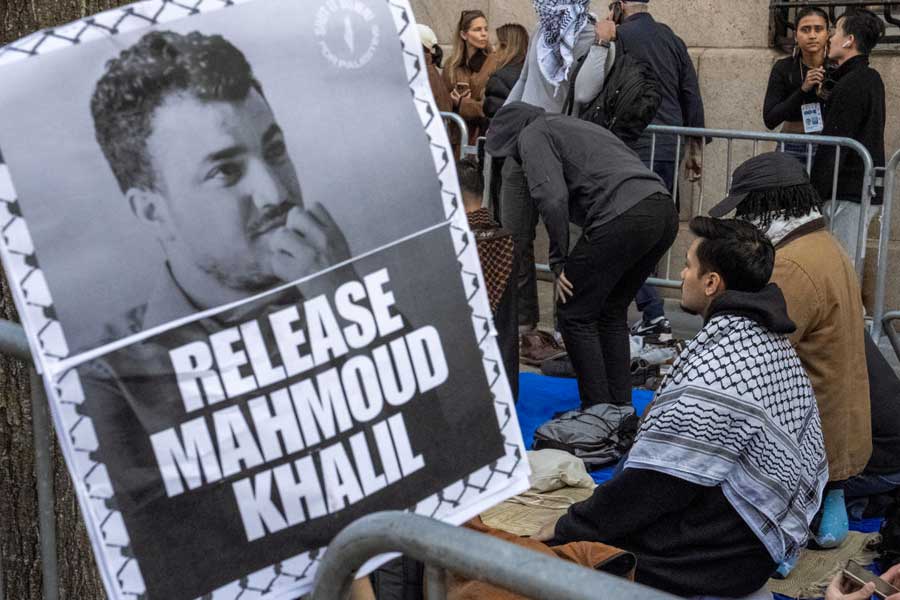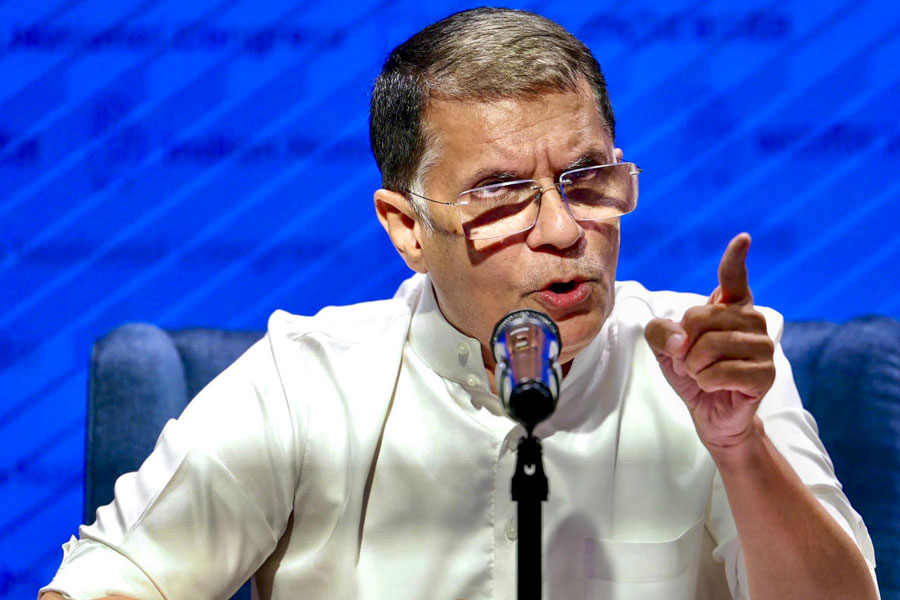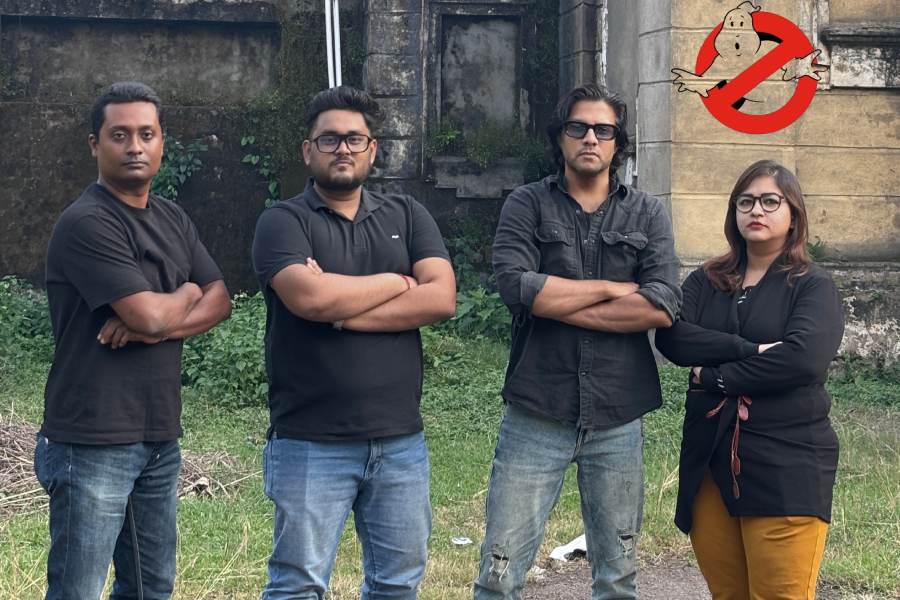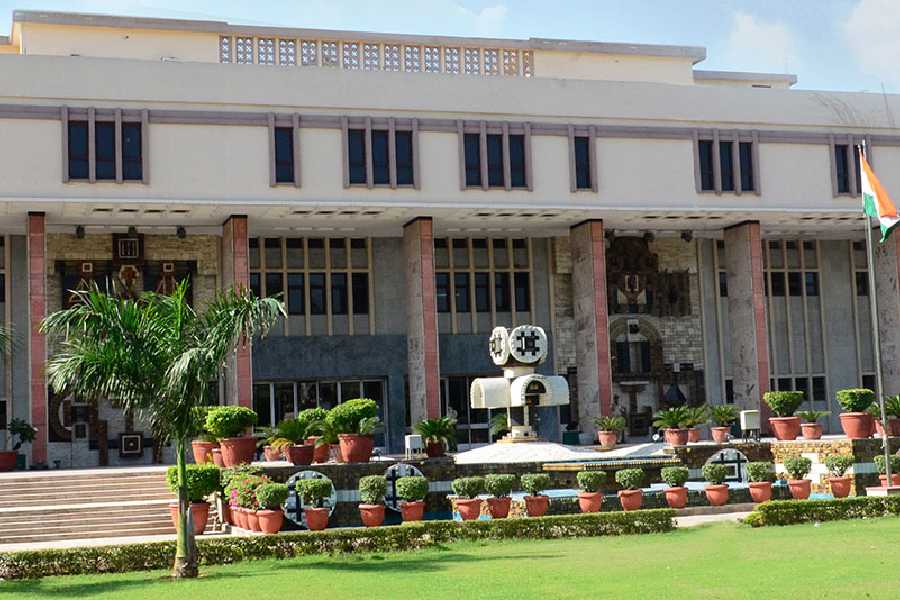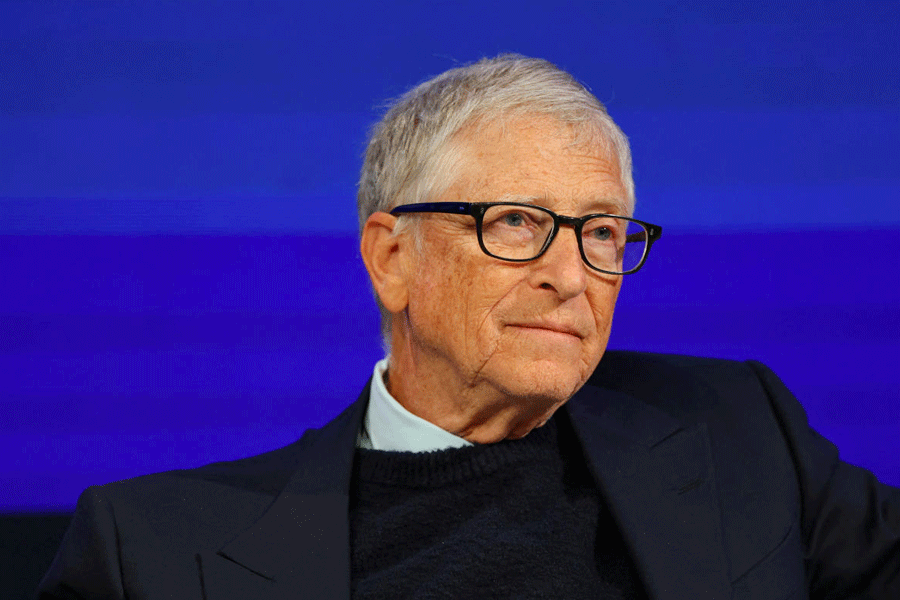A U.S. immigration judge ruled on Friday that President Donald Trump's administration can proceed with its deportation case against Columbia University graduate student and Palestinian activist Mahmoud Khalil, who was arrested in New York City last month.
Judge Jamee Comans of the LaSalle Immigration Court in Louisiana said she lacked the authority to overrule a decision concerning Khalil that U.S. Secretary of State Marco Rubio made last month under a 1952 law called the Immigration and Nationality Act. Rubio determined that Khalil should be removed because his presence in the United States has "potentially serious adverse foreign policy consequences."
The judge's decision is not the final say over whether Khalil will be deported. In a separate case in New Jersey federal court, U.S. District Judge Michael Farbiarz has blocked deportation while he considers Khalil's claim that his March 8 arrest was made in violation of the U.S. Constitution's First Amendment protections for freedom of speech.
Khalil, a prominent figure in the pro-Palestinian student protest movement that has roiled Columbia's New York City campus, was born in a Palestinian refugee camp in Syria, holds Algerian citizenship and became a U.S. lawful permanent resident last year. Khalil's wife is a U.S. citizen.
His case is a high-profile test of the Republican president's efforts to deport foreign pro-Palestinian students who are in the United States legally and, like Khalil, have not been charged with any crime.
The administration has said Khalil and other international students who take part in pro-Palestinian protests are harming U.S. foreign policy interests, citing a provision of the Immigration and Nationality Act that gives the secretary of state broad authority to determine when a foreign national may be deported.
Comans said Congress in that law gave the secretary of state "unilateral judgment" to make such a determination.
The judge's decision came after a 90-minute hearing held in a court located inside a jail complex for immigrants surrounded by double-fenced razor wire run by private government contractors in rural Louisiana. Khalil, 30, has called himself a political prisoner. He was arrested at his Columbia University apartment building and transferred to the Louisiana jail.
His lawyers have said the Trump administration was targeting him for speech protected by the First Amendment including the right to criticize American foreign policy.
"Mahmoud was subject to a charade of due process, a flagrant violation of his right to a fair hearing and a weaponization of immigration law to suppress dissent," his lawyer Marc Van Der Hout said in a statement after the hearing. "This is not over, and our fight continues."
The American immigration court system is run and its judges are appointed by the U.S. Justice Department, separate from the government's judicial branch.
The Trump administration submitted a two-page letter from Rubio as evidence Khalil should be deported. Rubio wrote that Khalil should be removed for his role in "antisemitic protests and disruptive activities, which fosters a hostile environment for Jewish students in the United States."
Rubio's letter did not accuse Khalil of breaking any laws, but said that the State Department can revoke the legal status of immigrants even when their beliefs, associations or statements are "otherwise lawful."
Khalil has said criticism of the U.S. government's support of Israel's military occupation of Palestinian territories is being wrongly conflated with antisemitism.
A State Department spokesperson said the department does not comment on ongoing legal cases.
In the case before Farbiarz, Khalil is challenging what he has said is his unlawful arrest, detention and transfer to the jail Louisiana, some 1,200 miles (1,930 km) from his family and lawyers in New York City.

